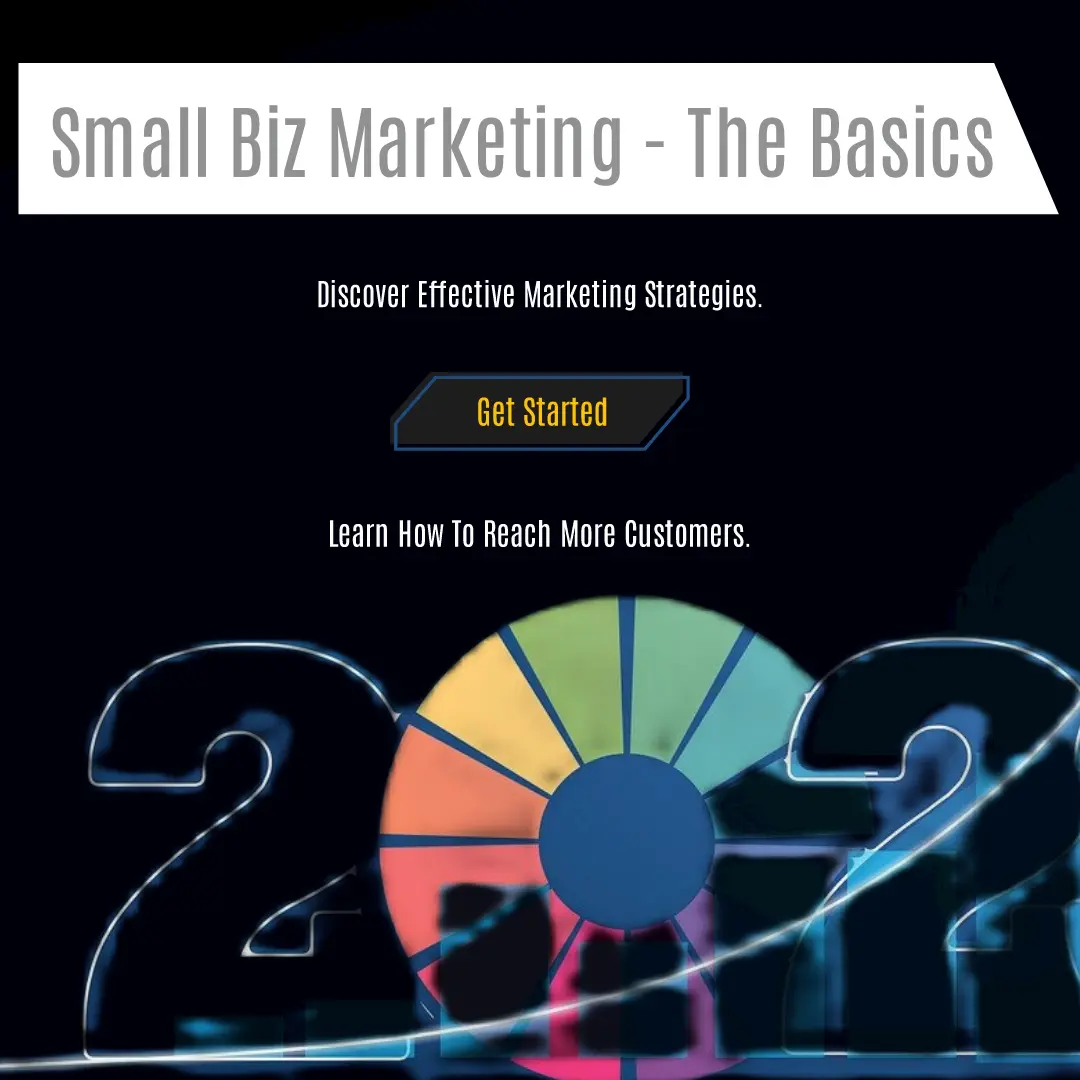Profile Your Target Customer
- Who is your ideal customer?
- What do they buy?
- Why do they need those products or services, and why do they buy from you?
Decide How To Reach Your Customer
The next step is to decide how you will reach your customer. Your customers have many sources of information, so it’s important to understand what they are and how they use them. You can then match your marketing efforts with the most effective channels for reaching them.
For example, if you want to reach young professionals who live in urban areas and have college degrees, social media might be the best way to reach them–and perhaps even better than more traditional methods like direct mail or print advertising.
Small Business Marketing: Be Found
If you want to be found by prospects, it’s important to understand how search engines work. The more people who search for a term that includes your keywords and the more often they do so, the higher your website appears in their results.
If someone searches for “small business marketing,” for example, there are two main ways you can get found:
- You can have content on your site that uses those words in its title or body text (e.g., “Small Business Marketing Made Easy”). This is called keyword optimization–it helps Google know what topics are important to visitors coming from different areas of the world or speaking different languages.
- You can link back to yourself from other sites where relevant discussions take place about topics related directly or indirectly with yours (e.g., linking out from an article about social media strategy).
Build A Relationship
Once a prospect lands on an online communication channel, the objective is to start to build a relationship and credibility to achieve a sale in the medium to long term.
The key here is not just about getting them to buy from you now but also building trust so that when they are ready for your product or service, they will return.
Small Business Marketing: Convert
Convert
- Lead prospects down a path and specifically tell them what you suggest they do (calls to action). For example, “If you’re interested in learning more about how this can help your business, please give me a call at 555-555-5555.”
- Secure an Email address (perhaps in return for a valuable download) to facilitate ongoing dialogue.
The Key To Small Business Marketing Success
The key to small business marketing success is starting with the customer. You can’t market your business if you don’t know who your customers are or what they need from you, so it’s important to start by defining your target audience and their needs.
Once you’ve done that, it’s time to deliver the information they need and develop a relationship that ultimately results in a sale. This means providing valuable content on social media platforms or through email newsletters–and making sure the message goes out via a method that is most likely to be read and engaged with (for example, Facebook versus LinkedIn).
Focus On The Basics
- Forget the marketing hype.
- Focus on the needs of the customer.
- Focus on the most efficient and cost-effective methods for reaching your target audience, whether it’s through social media, content marketing or search engine optimization (SEO).
- And finally, focus on being found by those customers who need what you have to offer!
Conclusion
In conclusion, when it comes to marketing your small business, it’s important to remember that the customer is always right. Your goal should be delivering the information they need and developing a relationship that ultimately results in a sale. To do this effectively, you must make sure the message goes out via a method that is most likely to be read and engaged with by your target audience–and focus on the basics:
- Start with the customer.
- Deliver the information they need
- Develop a relationship that ultimately results in a sale
Q: What are the essential marketing channels for a small business?
A: Essential marketing channels for a small business include social media marketing, email marketing, content marketing, search engine marketing (SEM), and influencer marketing. Each channel can help to reach new potential customers and grow your business by enhancing your online presence and engagement.
Q: How do I create a marketing plan for my small business?
A: Creating a marketing plan involves several steps: conducting market research to know your target market, defining your marketing goals, selecting your marketing strategies and tactics, setting your marketing budget, and measuring your plan’s effectiveness. A comprehensive marketing plan will guide your efforts and help you stay focused on your goals.
Q: What are some effective marketing strategies for small businesses?
A: Effective marketing strategies for small businesses include focusing on building a strong online presence using digital marketing, engaging with your community through social media marketing, leveraging email marketing to nurture relationships with your customers, and utilizing influencer marketing to reach new audiences. Tailoring these strategies to meet the needs and preferences of your target market can yield the best results.
Q: Why is a small business marketing strategy important?
A: A small business marketing strategy is important because it provides a structured approach to promoting your products and services, helps you understand and target your ideal customers effectively, and sets clear objectives and goals that align with your business’s growth ambitions. It also ensures that marketing efforts and resources are used efficiently to maximize returns.
Q: What is Small Business Marketing 101?
A: Small Business Marketing 101 is the fundamentals or basics of marketing specifically tailored for small businesses. It covers understanding your target market, creating a strategic marketing plan, choosing the right marketing channels to reach your audience, and implementing marketing tactics to engage potential customers and build brand awareness. It’s essentially a guide to help small business owners start their marketing journey on the right foot.
Q: How can online marketing benefit my small business?
A: Online marketing can significantly benefit your small business by increasing visibility, reaching a broader audience, engaging with customers directly, and collecting data for better customer insight. Effective online marketing strategies, such as search engine optimization (SEO), paid online advertising, and social media marketing, can help attract new customers and retain existing ones.
Q: Which marketing tactic works best for a local small business?
A: For a local small business, local SEO and local business listings, engaging in community events, and conducting local influencer outreach are highly effective marketing tactics. Additionally, leveraging social media platforms to engage with the local community and running targeted local ads can further increase your business’s reach and brand awareness in the local area.
Q: How can I effectively market my business with a limited marketing budget?
A: To effectively market your business with a limited marketing budget, focus on low-cost, high-impact tactics such as creating engaging social media content, nurturing an email list with valuable information and offers, utilizing free or low-cost social media advertising options, and encouraging word-of-mouth through excellent customer experiences. It’s also crucial to measure the impact of your marketing efforts to ensure you are investing in the most effective tactics.
Q: What resources can guide me in marketing for my small business?
A: Resources that can guide you in marketing for your small business include online marketing courses and webinars, small business marketing guides and blogs, local small business associations, and marketing books specifically aimed at small business strategies. These resources can provide valuable insights, strategies, and tips to help you market your small business effectively.


